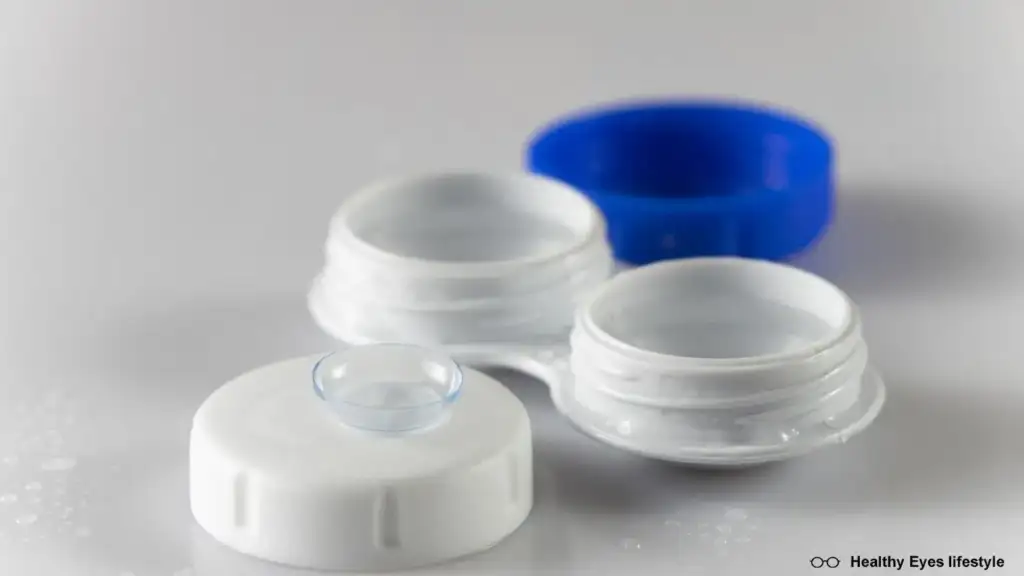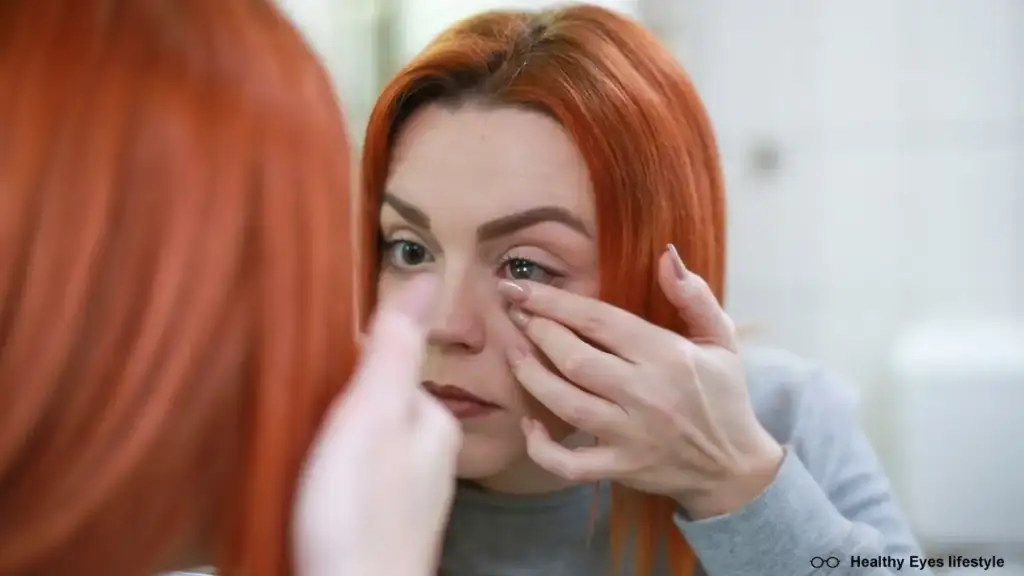Share This Article
Table of Contents
Introduction: Your Vision, Your Choice
For many, choosing between contact lenses vs glasses can feel like a big decision—it’s about comfort, lifestyle, and self-expression as much as it’s about clear vision. Maybe you’ve worn glasses your whole life, but are curious about contact lenses. Or perhaps you’re tired of the upkeep that contacts demand and wondering if glasses would be a simpler solution. No matter where you stand, this guide will help you weigh the pros and cons of each option, so you can make a choice that best fits your needs and lifestyle.
When it comes to clear vision, many people find themselves caught between two popular options: contact lenses and glasses. The choice can feel like a personal journey, as it’s about more than just vision correction. It’s about what suits your lifestyle, reflects your personality, and, of course, enhances your comfort. If you’re considering making the switch or simply exploring which choice is best for you, this guide will break down everything you need to know about contact lenses and glasses.
Whether you’ve worn glasses for years or are just curious about contacts, this article will help you compare the pros and cons, so you can make an informed choice that best aligns with your needs.
The Basics of Contact Lenses and Glasses
Before diving into the benefits and drawbacks, let’s briefly touch on how contact lenses and glasses work. Both serve to correct your vision, but each achieves this in distinct ways.
Contact Lenses: These thin lenses rest directly on your eye, moving with it as you look around. Contacts correct vision by adjusting how light enters the eye, ensuring it lands correctly on your retina. Modern lenses come in a variety of forms, including daily wear, extended wear, and specialty lenses for conditions like astigmatism.
Glasses: Glasses consist of frames with lenses that adjust the light entering your eyes to correct your vision. Lenses can be tailored to specific needs, whether for nearsightedness, farsightedness, or progressive vision correction. Unlike contacts, glasses sit away from your eyes and are easily removable.

Benefits of Contact Lenses vs. Glasses
Both contact lenses and glasses have advantages that might appeal to you based on your lifestyle, aesthetic preferences, and vision needs.
Why Choose Contact Lenses?
1. Natural Vision
Contact lenses sit directly on the eye, moving with it to provide a more natural field of view. Without the obstruction of frames, contacts reduce peripheral distortions and can feel more immersive, especially if you’re used to the visual boundary that glasses create.
2. Convenience During Physical Activity
If you’re active or play sports, contact lenses can offer an edge. Since they don’t shift or fog up, contacts allow you to engage in physical activities without worrying about the interference that frames can cause.
3. Unobstructed Aesthetic
For those who prefer an unobtrusive look, contacts are a clear choice. They don’t affect your face’s appearance and won’t cover your eyes, so you can present a natural look. This aspect is particularly appealing for people who enjoy makeup or want a more streamlined style.
4. Weather Resistant
Rain, humidity, and cold weather can be a nuisance for glasses wearers, as lenses can fog up or collect water. Contact lenses are unaffected by such conditions, making them convenient for various climates.
Why Choose Glasses?
1. Ease of Use and Low Maintenance
Glasses don’t require the same level of care as contacts. A quick wipe of the lenses keeps them clean, and you don’t need to purchase special solutions or cases. This simplicity appeals to people looking for an easy-to-manage option.
2. Lower Risk of Eye Irritations
Contacts can sometimes cause eye irritation, especially for those with allergies or dryness. Glasses, on the other hand, reduce the risk of eye infections since they don’t directly contact the eye. They also shield your eyes from environmental elements like dust, reducing the risk of irritations.
3. Style and Self-Expression
Glasses come in countless frame styles, colors, and shapes, allowing you to choose a pair that reflects your personality and style. For many, glasses are more than a vision aid—they’re a fashion statement.
4. Cost-Efficient in the Long Run
Although glasses can be an investment, they don’t need to be replaced as frequently as contacts. Many people find that a quality pair of glasses can last for several years, whereas contacts require regular replacement.

Drawbacks of Contact Lenses vs. Glasses
While both options have their strengths, it’s essential to understand the potential downsides, especially if you’re considering a switch.
Downsides of Contact Lenses
1. Higher Risk of Eye Infections
Since contacts are worn directly on the eyes, they need careful hygiene practices. Improper cleaning or prolonged wear can lead to infections caused by bacteria or other contaminants. Following a daily cleaning regimen is vital to avoid these risks.
2. Ongoing Costs
Contact lenses are consumables, which means regular replacement costs. Additionally, you need to buy cleaning solutions and storage cases. Over time, these expenses can add up and make contacts a pricier option than glasses.
3. Potential for Dryness and Discomfort
Contact lenses can cause dryness, especially for people in low-humidity environments or those who wear lenses for extended periods. Some lenses are designed to retain moisture, but this issue persists for many wearers.
Downsides of Glasses
1. Limited Peripheral Vision
Glasses don’t cover your entire field of vision, which may lead to limited peripheral visibility. This restriction can be a challenge, particularly for activities that require a full range of sight.
2. Inconvenience During Physical Activities
Glasses can be challenging to wear during sports or workouts. They may slip, bounce, or fog up, creating distractions. This factor can limit some activities, especially if you’re very active.
3. Aesthetic Concerns
While glasses can be a stylish accessory, not everyone prefers the way they look with frames. Some people may feel that glasses don’t suit their face or that they detract from their natural appearance.
Table: Comparing Comfort and Convenience: Contact Lenses vs. Glasses
| Feature | Contact Lenses | Glasses |
| Vision Clarity | Full, natural field of view with no obstructions | Clear vision with visible frame boundaries |
| Comfort During Exercise | High – stay in place and don’t fog up | Can slip, bounce, or fog during activities |
| Maintenance | Requires daily cleaning and special storage | Minimal cleaning needed, simple maintenance |
| Aesthetic Appeal | Unobtrusive, natural appearance | Wide variety of frame styles for self-expression |
| Cost Over Time | Higher due to frequent replacements | Generally lower with long-lasting frames |
Choosing the Right Option Based on Your Lifestyle
For Active Individuals:
If you regularly engage in sports or fitness activities, contacts may be a better fit for your active lifestyle. They won’t slip, fog, or need adjusting, allowing you to stay focused on your workout or game.
For Those with Sensitive Eyes or Allergies:
Glasses are the preferred choice if you have allergies or suffer from dryness, as they reduce the risk of irritation and infections. They also create a barrier against dust and allergens.
For Budget-Conscious Wearers:
Glasses tend to be more cost-effective in the long run. While the initial investment can be high, a durable pair of glasses lasts longer, requiring fewer ongoing costs than contacts.
For Style and Self-Expression Enthusiasts:
If you enjoy expressing your personality through your look, glasses may be more appealing. With a wide variety of frames, shapes, and colors, glasses can be a true reflection of your style.

Conclusion: The Personal Choice Between Contact Lenses and Glasses
Choosing between contact lenses and glasses is a highly personal decision. Both options have their unique benefits and potential drawbacks, but the choice ultimately comes down to what best aligns with your lifestyle, comfort, and vision needs. By understanding each option’s pros and cons, you can make a more confident decision and enjoy clear vision in a way that fits you best.
Ready to take the next step?
If you’re still unsure, consult your optometrist for guidance. A professional assessment can help you identify which option suits you better, considering your eye health and lifestyle. Embrace the clarity you deserve and make your vision solution work for you!
FAQs
Are contact lenses safe to wear every day?
Yes, contact lenses can be worn daily if you practice proper hygiene. Make sure to clean them thoroughly and follow your optometrist’s guidelines for safe wear. Some lenses are designed for daily disposal, while others can be used for longer periods, provided they’re stored correctly.
Which is more cost-effective in the long run: contact lenses or glasses?
In general, glasses tend to be more cost-effective. While contacts require regular replacement and supplies, a pair of quality glasses can last several years. Over time, this can make glasses the more affordable option.
Can I switch between contact lenses and glasses?
Absolutely! Many people enjoy the flexibility of switching between contacts and glasses based on their needs or activities for the day. It can be beneficial to have both options, especially if you find certain situations better suited to one over the other.
How do I know which option is best for my lifestyle?
Think about your daily activities, personal comfort, and budget. If you’re active or want an unobtrusive look, contacts might be best. Glasses may be better if you’re looking for an easy, low-maintenance option.
Do contact lenses provide UV protection?
Some contact lenses come with UV protection, but they don’t fully shield your eyes like sunglasses. If UV protection is a concern, look for lenses with built-in UV blocking and consider wearing sunglasses over your contacts for added safety.



